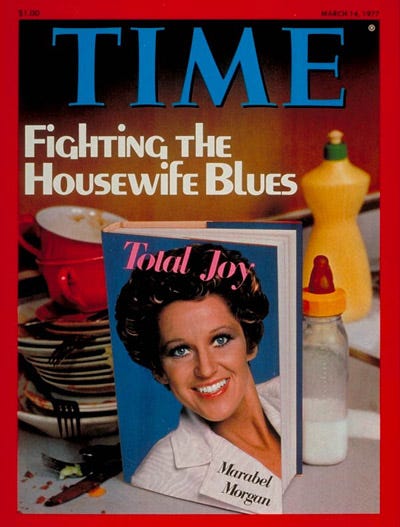Member-only story
Remembering ‘The Total Woman’ Nearly Fifty Years Later
A best-selling book that taught women to submit to their husband and greet him in sexy costumes served as one formula for those rejecting the women’s movement

Nearly fifty years ago, in the wake of the Equal Rights Amendment’s passage through Congress, a book published offering an alternative model of womanhood. The Total Woman, authored by Marabel Morgan, a former beauty queen and Campus Crusade for Christ counselor, recommended women dedicate (or rededicate) themselves to wifely submission, sexual availability to their husbands, and organizing their homemaking days to maximize their husbands’ pleasure.
While feminists pushed for reproductive freedom, professional and educational opportunity, and equal rights under the law, Morgan found success sponsoring Total Woman seminars. Within a year of publication, The Total Woman was a best-seller — the best-selling nonfiction book in the U.S. in 1974 — selling roughly four million copies.
In many ways, Morgan followed the pattern through which many evangelical leaders have found success: she focused on home and hearth issues, built a following via in-person gatherings, then published a book that encapsulated her take on scripture and leaned on stories gathered from followers of her program. As she began teaching her methods to Miami Dolphins’ players’ wives — and the team won more games — she suggested those wins could be attributed to the Total Women making the players’ home-lives happier.
Within a few years of publication, she’d franchised her trainings, with her followers charging $15 per two-hour session to thousands of women (and Morgan taking a third of each fee paid). According to TIME in 1977, her take by then was $1.5 million.
She also made “the total woman” the antithesis of feminism. It was maddening to those who disagreed with her and created further justification for women’s submission for those who rejected the movement for equality.
In a girlfriendy tone, Morgan opened by explaining how her own husband’s attention and interest in basic conversation had fizzled early in their marriage. She’d later tell a reporter, early on “I really tried to…
